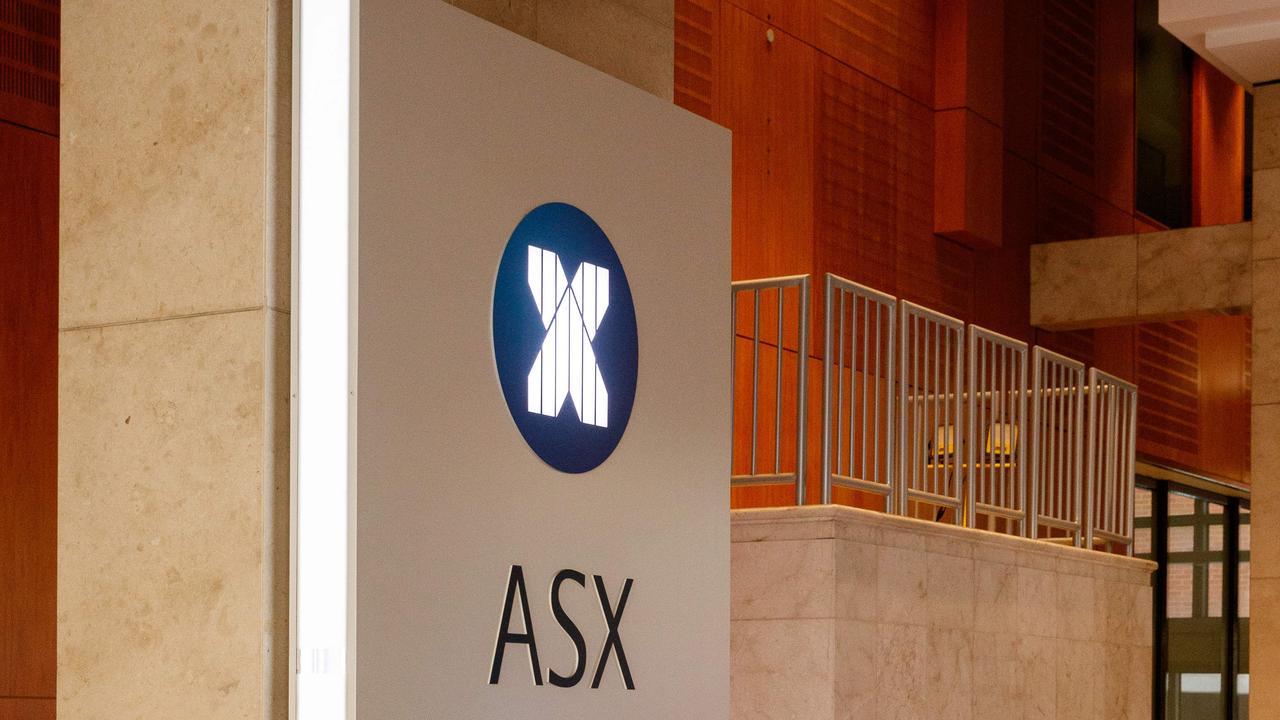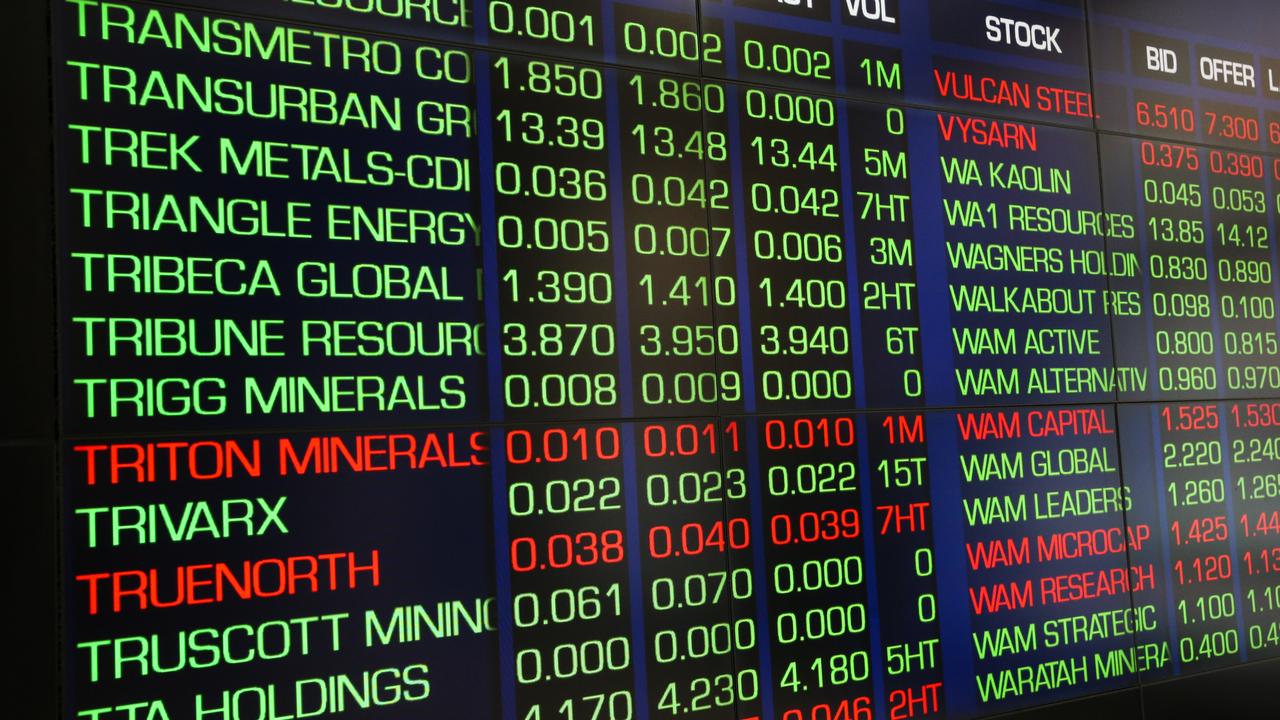Australian shares to fall as coronavirus-hit airlines send markets tumbling, ANZ job cuts
The Australian Stock Exchange has suffered another major blow, with benchmark S&P/ASX200 closing at the lowest level since May. ANZ bank is also cutting jobs amid the coronavirus spread.
Markets
Don't miss out on the headlines from Markets. Followed categories will be added to My News.
The Australian Stock Exchange has suffered a major blow, with benchmark S&P/ASX200 closing at its lowest level since May 14 – down 2.8 per cent at 6216.2.
It is the second-worst day of the year and crashing due to the coronavirus outbreak.
The broader All Ordinaries index finished down 184.9 points, or 2.86 per cent, to 6,287.5, with every sector in the red as global coronavirus cases neared 100,000.
CommSec market analyst James Tao said “volatility remain(ed) the key theme for the markets”.
“Investors are really trying to wrestle with the stimulus packages offered by central banks and the economic impact of the coronavirus,” he said.
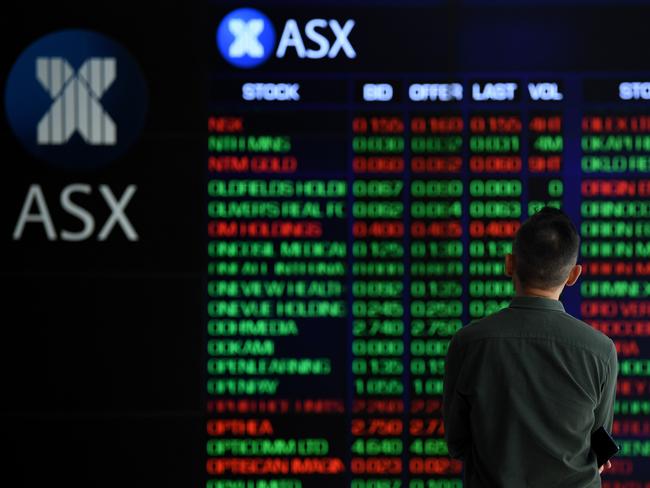
ASX suffered its second-worst loss since October 2018 for the week, dropping 3.5 per cent. This was only beat by last week’s mammoth drop of 9.8 per cent.
Since hitting an intraday high of 7,197.2 on February 20, the ASX200 has lost 13.6 per cent of its value in just 11 and a half days of turbulent trading, and is down 7.0 per cent on the year.
The worst sectors to be hit today were the banking and tech sectors.
They both plummeted 4.2 per cent as three of Australia’s four major banks sank to their lowest levels since 2012.
NAB dropped 5.5 per cent to $22, Westpac fell 4.0 per cent to $21.35, and ANZ dropped 4.7 per cent to $22.14.
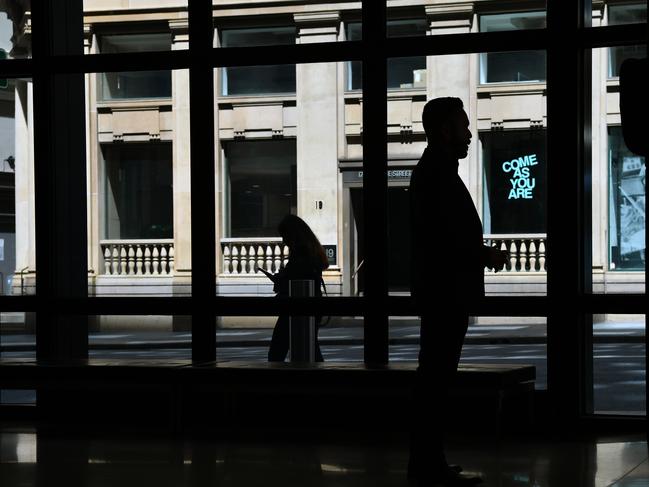
Commonwealth – seen to be less affected by the Reserve Bank’s cut to the cash rate – fell 3.7 per cent to $73.93. It is its lowest level since May 2019.
Commonwealth Bank has lost its place as Australia’s largest company by ASX-listed market capitalisation after its stock closed down 9.6 per cent.
As of close of business, CBA has a market cap of $135.8 billion, compared to CSL’s $143.8 billion.
BHP has a value of around $160 billion including the value of its shares on the London Stock Exchange.
In the tech sector, Xero dropped 5.5 per cent, Afterpay fell 4.2 per cent and Altium declined 3.8 per cent.
ANZ JOB CUTS AS CORONAVIRUS THREATENS ECONOMY
ANZ will sack 230 jobs from its private bank and advice business.
The move comes two weeks after the bank announced the closure of three South Australian branches in Riverton, Maitland and Yankalilla.
Financial Sector Union of Australia National Secretary Julia Angrisano said ANZ’s move comes as Australia deals with the economic impact of the coronavirus and bushfires.
“The risks to the Australian economy are real. That is why the Reserve Bank reduced interest rates to record lows earlier this week. ANZ is a tier one business, they should be leading the way in mapping out sensible reforms that demonstrate good corporate citizenry,” she said.
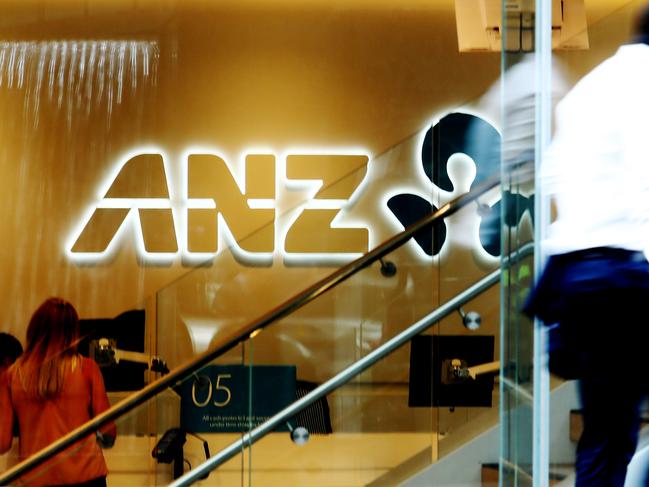
“Australians backed the banks through the Global Financial Crisis; as the coronavirus and bushfire headwinds threaten the Australian economy, ANZ need to be reminded it has a broader responsibility to the community.”
An ANZ spokesman said the bank had made a number of changes, including the sale of the insurance business, aligned dealer groups and pension investment business.
“We are now making some changes to simplify our retail distribution and financial planning capabilities so we can provide more focused and meaningful advice for our most financially complex customers,” he said.
“This means the advice team will be smaller, which will impact a number of our financial planners and support staff members.”
MORE NEWS
Cinderella to ugly stepsister: How Meghan lost her sparkle
America’s respect for older people a lesson for Australia
Play School host: My concerns over kids and TV
ANZ has promised to help sacked staff in redeployment, outplacement, career coaching and training.
Analysts have warned the combined impacts of the bushfires and the coronavirus could take a heavy toll on the Australian economy.
Prime Minister Scott Morrison has warned that the impact could be equal to that of the 2007 global financial crisis.
The government is expected to announce stimulus measures in the coming days to boost the economy.
US STOCKS SELL-OFF DEEPENS ON VIRUS FEARS
US equities fell sharply overnight as coronavirus fears intensified after the number of cases confirmed in the US rose to 164 and California declared a state of emergency.
Earlier, American stocks sold off sharply, with shares of travel companies pummelled, as large swings in the market continued amid uncertainty over the spread of the coronavirus and its economic fallout.
The major indexes were down more than three per cent a day after they tallied huge gains following moderate Joe Biden’s success in the Super Tuesday primaries for the Democratic presidential nomination.
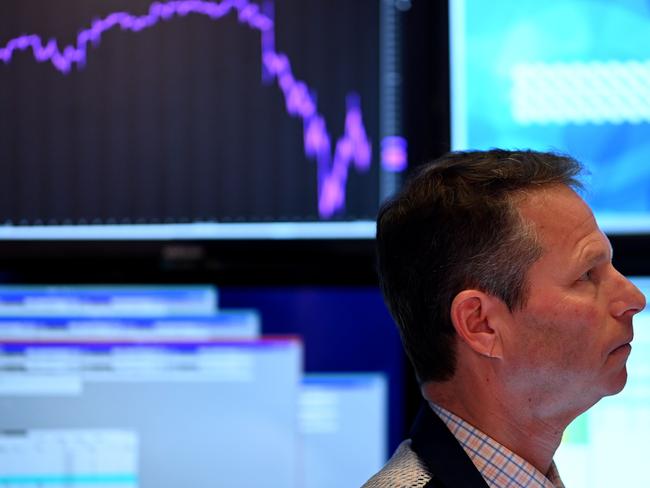
Declines resumed along with continued volatility as investors grappled with the ultimate economic impact from the coronavirus, which has led to more than 3,300 deaths worldwide.
In the latest developments, Alphabet Inc’s Google joined other big tech firms in recommending employees in the Seattle area to work from home, while new cases arose around New York and Los Angeles.
“There’s no way to put a framework around this, there’s no way to model it, because you just don’t know,” Carol Schleif, deputy chief investment officer, at Abbot Downing in Minneapolis.
“The market is clearly trading on emotion today and not fundamentals because they can’t peg where the fundamentals are,” Schleif said.
The Dow Jones Industrial Average fell 1,010.46 points, or 3.73 per cent, to 26,080.4, the S & P 500 lost 114.57 points, or 3.66 per cent, to 3,015.55 and the Nasdaq Composite dropped 288.07 points, or 3.19 per cent, to 8,730.02. The benchmark S & P 500 was last down over 10 per cent from its Feb. 19 closing high.
The financial sector dropped 5.3 per cent as the continued fall in Treasury yields weighed on rate-sensitive bank shares, with the yield on the 10-year Treasury note falling to 0.92 per cent. Defensive sectors, such as utilities and consumer staples, were down less than the overall market.
The CBOE Volatility index, Wall Street’s fear gauge, jumped 8.63 points to 40.62.
Shares of companies in the travel and leisure industry were punished, with the S & P 500 airline index off 7.1 per cent, including a 10.3 per cent fall for American Airlines Group Inc.
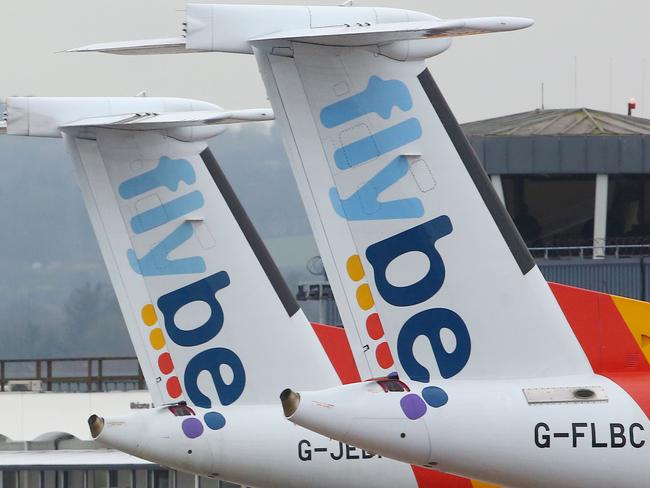
The coronavirus epidemic could rob passenger airlines of up to $113 billion in revenue this year, an industry body warned.
Shares of cruise operators tumbled after the Grand Princess ocean liner, owned by Carnival Corp, was barred from returning to its home port of San Francisco on coronavirus fears after at least 20 people aboard fell ill. Carnival shares dropped 13.7 per cent, while Royal Caribbean Cruises fell 15.5 per cent. Data showed that the number of Americans filing for unemployment benefits fell last week, suggesting the labour market was on solid footing despite the coronavirus outbreak, with investors casting an eye toward Friday’s US employment report for February.
Declining issues outnumbered advancing ones on the NYSE by a 6.38-to-1 ratio; on Nasdaq, a 4.96-to-1 ratio favoured decliners.
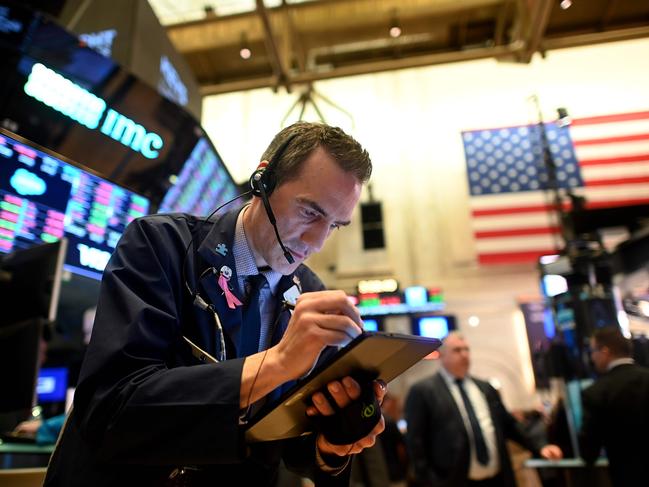
The S & P 500 posted 8 new 52-week highs and 73 new lows; the Nasdaq Composite recorded 25 new highs and 282 new lows.
On Thursdays, worries about the virus returned to the forefront as more companies warned of a profit hit from the outbreak.
“The earnings warnings are just getting started,” said Briefing.com analyst Patrick O’Hare. “That’s why one can continue to expect heightened volatility in the market, because the warnings and the heightened uncertainty around earnings prospects diminishes faith in ‘discounted valuations.’”
Airline shares were down sharply after Southwest Airlines slashed its forecast for first-quarter revenues by $US200 million to $US300 million, citing a “significant decline” in bookings and uptick in trip cancellations in recent days.

Shares of Southwest plunged 4.6 per cent, while rival carriers Delta Airlines, American Airlines and United Airlines all fell at least five per cent.
The struggling British airline Flybe collapsed amid drops in demand caused by the new coronavirus, leaving passengers stranded and threatening the viability of regional airports across the country.
Flybe’s fall highlights the damage that the virus outbreak has had on the airline industry, which has cut back on flights around the world as people avoid flying out of precaution.
The British regional airline narrowly avoided bankruptcy in January but had continued to lose money.
Originally published as Australian shares to fall as coronavirus-hit airlines send markets tumbling, ANZ job cuts

